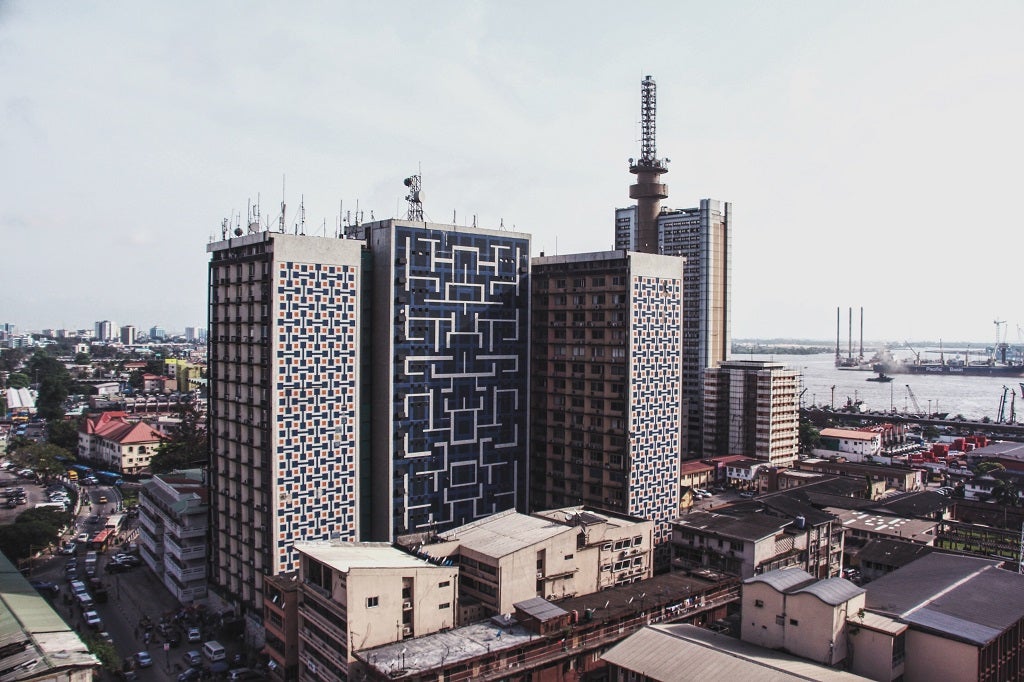Moving to Lagos
Lagos
-
Affordability 6 out of 5
-
Safety 6 out of 5
-
Healthcare 1 out of 5
-
Traffic Flow 6 out of 5
-
Property affordability 6 out of 5
-
Climate 4 out of 5
-
Environment quality 6 out of 5
Named by the Portuguese in the fifteenth century it may be that Lagos means lakes or it may simply be named after the similarly monikered town in Portugal. In any case, its European discoverers didn’t do justice to the beauty of this African city on the sea. Following Nigerian independence from Britain in 1960 an economic boom and population explosion set Lagos on the path to becoming the largest city in Africa.

A bustling metropolis of well over 8 million souls, Lagos is situated on the Gulf of Guinea and is one of Africa’s busiest ports. As in New York the historic and commercial centre is found on an island. Just one of the many islands which make up the city Lagos Island is separated from the mainland by Lagos Lagoon and the Five Cowries Creek. This is where you’ll find the financial businesses that administer the significant export of oil and petroleum via the Port of Lagos, the skyscrapers that are shooting up as fast as they can be built and the newly confident, skilled Nigerian workers who are making their country an ascendant economic power.
The city has sprawled far beyond the confines of Lagos Island though. Whether downtown or in one of the many suburbs you’ll find streets busy with hawkers, where the aroma of street food like Akara (fried bean balls served with local custard) fills the air and pedestrians crossing roads gingerly – ever alert to the dangers of reckless okada (commercial motorbike) drivers.
Moving to Lagos from the UK
As a city within a state of the same name Lagos has no overall city government but is divided into 16 separate municipalities. English is an official language, making life easier for those moving from Britain to Lagos, though actually speaking it remains the preserve of the urban elite. If you’re working outside the city centre at all it might be worth familiarising yourself with a few words and phrases in the region’s major language of Yoruba.
Roads in Lagos are rather chaotic so it may take time getting used to both driving on them and crossing over them. Congestion is a major issue due to the sheer number of Lagos inhabitants but the city does have the most extensive urban highway network in Africa.
While healthcare is generally of a high standard in Lagos you should contact your GP well in advance of your trip to arrange any vaccinations that they deem necessary. Malaria is very common and it’s also worth taking precautions against waterborne diseases like typhoid and cholera by e.g. sterilizing fresh fruit and veg.
The large numbers of expats drawn to Nigeria by the oil and communications industries have created large demand for housing and inflated property prices. Lagos has some of the most expensive real estate anywhere in Africa, averaging £650 – £750 per square metre. The most affluent part of the city is Victoria Island which has a beach, a rapidly growing CBD and where a 3 bedroom apartment will set you back around NGN 55,000,000 (£216K).
Select the size of your move to get free quotes
Comparing Lagos vs London
Lagos has a tropical climate with pronounced wet and dry seasons. It experiences considerably more rainfall than London (more than double in fact) but downpours are almost totally confined to the two rainy seasons – the major taking place between April and July and the minor in October/November. Lagos sees around 25% more sunshine hours per annum than London and temperatures fluctuate in a narrow band between 22 °C and 33 °C.
The cost of living in Lagos is, as you’d expect, significantly lower than in London. Property and rents are dramatically lower while you’ll also pay less for transport, utilities, eating out and groceries (though some items which are harder to obtain in Africa, like rice and dairy products, will cost more). Average salaries though are much lower in Lagos so locals find themselves with reduced spending power as compared to their London counterparts.
On the whole Lagosians report themselves as feeling less safe and experiencing more pollution than Londoners. They report receiving healthcare of a standard only slightly lower than Londoners.







